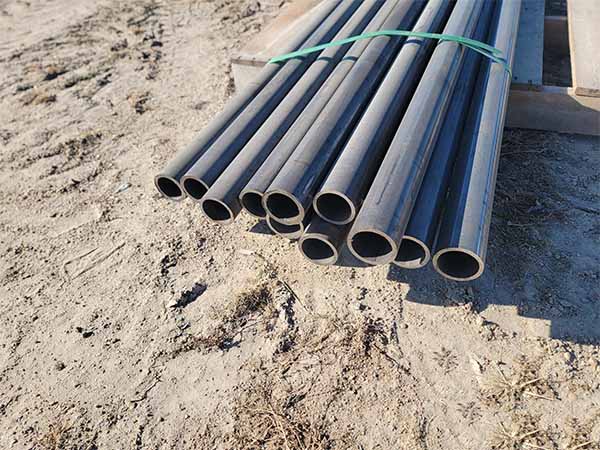
Zinc coating thickness: 40-85 μm (hot-dip galvanized)
|
Nominal diameter NPS |
Outer diameter OD |
Wall thickness |
Unit weight (kg/m) |
|
1" |
33.4 mm |
4.55 mm |
2.27 |
|
2" |
60.3 mm |
5.54 mm |
6.18 |
|
4" |
114.3 mm |
8.56 mm |
19.06 |
|
6" |
168.3 mm |
10.97 mm |
36.51 |
Quality advantage
1. Excellent anti-corrosion ability: The zinc coating can effectively resist the erosion of moisture, oxygen, chemicals and seawater.
2. High pressure resistance: Schedule 80 galvanized steel pipes have a relatively high wall thickness and can withstand high pressure, making them suitable for transporting high-pressure fluids.
3. Long service life: Schedule 80 galvanized steel pipes have a relatively long service life, are suitable for long-term installation, and have low maintenance costs.
4. High structural strength: Schedule 80 galvanized steel pipes have a tensile strength of 60,000 psi. Besides transporting media, they can also be used as structural components.
The main application fields
Municipal water supply and drainage network: Urban water supply and drainage projects
Marine and offshore engineering: Shipbuilding, docks, offshore platforms
Chemical plant pipeline network: Resistant to corrosion by weak acid and alkali media
Agricultural irrigation: Suitable for outdoor and humid environments
Industrial structural components: support frames, frameworks, scaffolding
Schedule 80 vs Schedule 40 galvanized steel pipe
Wall thickness: Schedule 80 is thicker and has higher pressure resistance
Working pressure: Schedule 80 is suitable for high-pressure conveying
Cost: Schedule 80 is more expensive but has a longer lifespan
Application differences: Schedule 40 is suitable for low and medium pressure, while Schedule 80 is used for high pressure or heavy load conditions.
Installation precautions and maintenance suggestions
When cutting steel, it is necessary to avoid damaging the zinc coating to prevent corrosion of the steel pipe due to the damage of the zinc coating.
2. Before welding, the galvanized layer in the welding area should be ground to ensure the strength of the welding. After welding, zinc-based anti-corrosion paint should be applied to protect the welding area from corrosion.
3. Regular inspections, especially in corrosive environments such as the ocean.
4. Avoid long-term contact with strong acids.
Summary
Schedule 80 galvanized steel pipes feature both high strength and corrosion resistance, making them highly suitable for Marine engineering, chemical, industrial and municipal projects. When making a purchase, reasonably matching the specifications with the application requirements can significantly extend the service life of the pipeline and enhance its safety.
Read more : Schedule 10 vs schedule 40 steel pipe